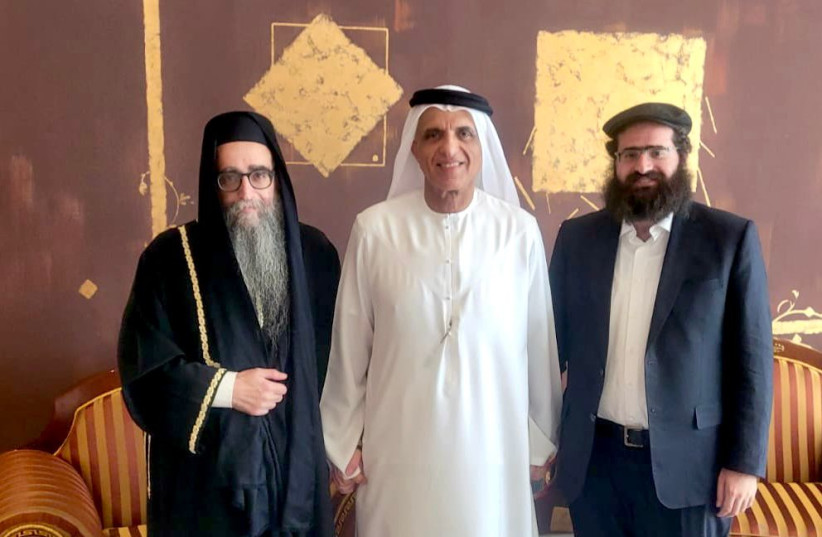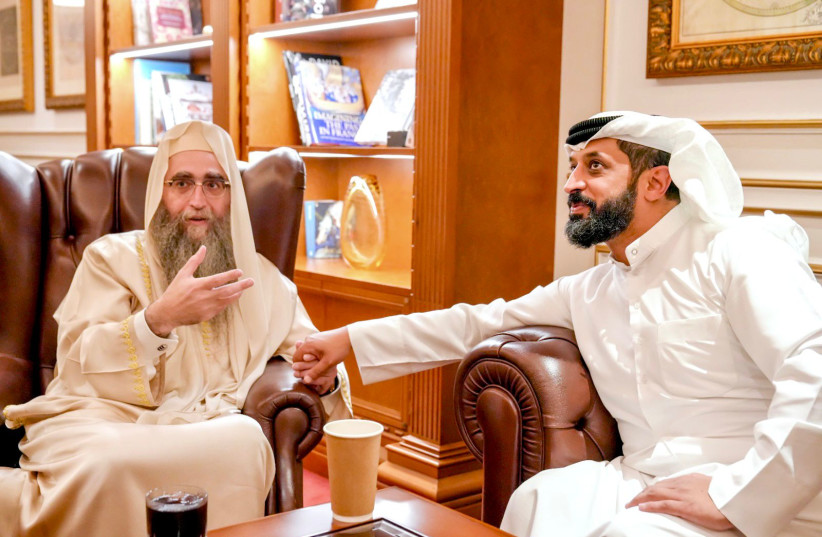There were widespread echoes from Rabbi Yoshiyahu Pinto’s visit last week to the United Arab Emirates in preparation for the establishment of a new Shuva Israel yeshiva in Dubai. A suitable location for the new yeshiva is being looked into in the last few days, with the aim that it be accessible to the Jews who live there and to the thousands of Jewish tourists who visit Dubai.
During Rabbi Pinto's stay in Dubai, he met with senior government officials, businessmen and local public figures who consulted with him and received his blessing.

Upon his arrival in Dubai, an official reception was held in his honor hosted by Sheikh Nahyan bin Mubarak Al Nahyan, the Minister of Tolerance. Rabbi Pinto was accompanied by his son and successor Rabbi Yoel Moshe Pinto, and his brother, Rabbi Menachem Pinto.
The talk he held the next day was attended by many businessmen, among them the Israeli billionaire Ayal Waldman, chairman of the Waldo Holdings investment fund, and attorney Ziv Agmon, a legal expert in the United Arab Emirates.

Earlier, Rabbi Pinto met with a number of senior officials in the kingdom. He had a long meeting with Sheikh Saud bin Saqr Al Qasimi, the current ruler of the Ras Al Khaimah Emirate, one of the seven emirates comprising the United Arab Emirates. The meeting took place in the ruler's office.
Rabbi Pinto also met with several businessmen: Ahmed Sultan Ben Sulam, Vice Chairman of KP, Chairman and Executive Director of DMCC and Chairman of the Dubai Diamond Exchange, and Atinirmal G. Pagarani, Chairman of the Global Yogi Group, and many others.
Rabbi Pinto met with the Israeli Ambassador to the United Arab Emirates, Amir Hayek, who told him about the United Arab Emirates’ relations with Israel in general and the Jews in particular. Rabbi Pinto blessed the ambassador to sanctify heaven with his important work.
In his visit to Dubai, Rabbi Pinto was accompanied by a series of businessmen from the USA and Israel who held meetings with businessmen from the Emirates in preparation for future business collaborations.
This article was written in cooperation with Shuva Israel